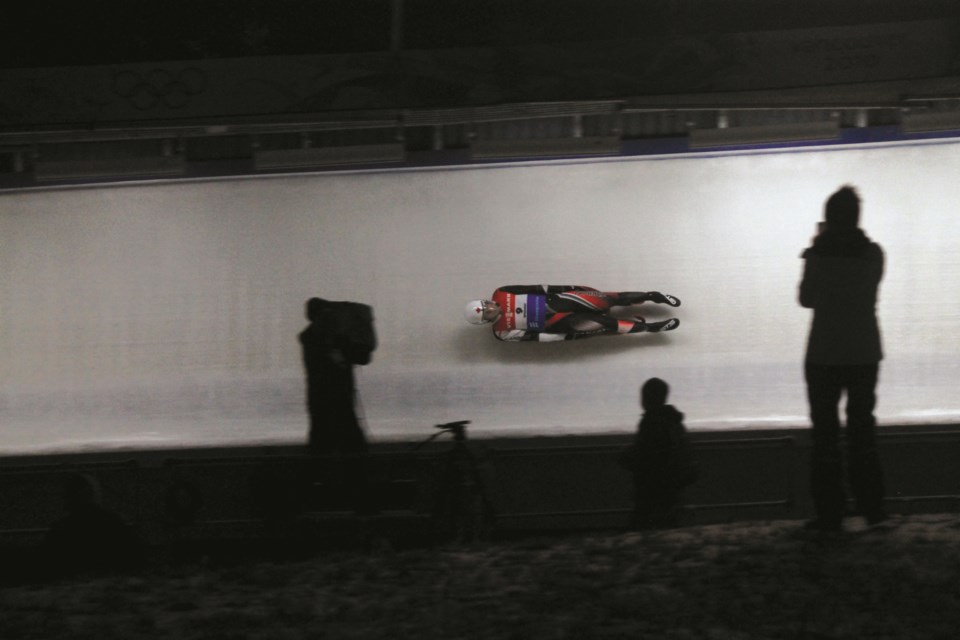For the second year in a row, the Whistler Sliding Centre will not host any Luge World Cup events due to the COVID-19 pandemic.
Whistler and Lake Placid, N.Y. were each scheduled to host a stop on this year’s circuit, but the International Luge Federation (FIL) decided to move each event to the 2014 Olympic track in Sochi, Russia.
The news, announced at the end of August, came as a surprise to Whistler Sport Legacies president Roger Soane, especially after losing the 2021 World Championships in February for the same reasons.
“It is frustrating because we know that the Europeans typically don’t like to come to North America ... but the sliding associations in Canada and USA have pushed very hard [for] races be held in North America every year,” said Soane.
“I understand why they aren’t coming this year because at the time they wanted to secure flights, we couldn’t guarantee what the process would be to come into Canada. So, I get it, but I think it was a premature decision because I think if they’d waited a little longer, we would have had a much better result.”
With Whistler’s track also being used as a high-performance training centre, Soane said he doesn’t believe the FIL’s decision will impact the sliding centre too much from a financial standpoint. However, Soane’s main concern is seeing North America’s absence from the schedule become a trend moving forward, which he said could have lasting impacts on the sport in Canada.
“It’s not as though the track would be dark; there’s plenty of people that want to train on the track and in fact holding a championship means that a lot of the junior sliders get pushed out for that period because they can’t access the track. As far as we’re concerned, it’s disappointing because it’s what we are built for; it’s what Whistler does well. We do great events, we’ve got a great track and to be quite honest the athletes do like coming to Whistler because it is such a great location,” he said.
“We don’t grow up as Canadians thinking, ‘I’m going to jump in a bobsleigh.’ Our athletes are plucked out of other sports because of their athletic prowess, so we don’t have a huge [number] of athletes in the pools of these sliding sports. And if you talk to some of the athletes in Whistler who are sliders now, they got into the sport because they came to a competition and they saw it and they saw the excitement and thought, ‘I’d like to try that.’ So, to me, it’s about grassroots, it’s about hosting these events because it inspires the next generation of sliders.”
Local luger Caitlyn Nash, who first started sliding after witnessing the sport for the first time at the Vancouver Olympics in 2010, is a prime example of how important hosting events in Whistler is for the next generation of sliders.
Currently, Nash is finishing up training in Calgary before heading to Latvia for her first races of the season.
And with her goal of qualifying for the World Cup circuit for the first time as a singles rider, the loss of the home track advantage was disappointing news for the 18-year-old.
“Obviously racing on a home track gives our team a big advantage points-wise for qualifying for [the 2022] Olympics, and then having that opportunity being taken away from us at the last minute is kind of a big blow especially after all the training we did last year,” she said.
“That was going to be one of my first world cups ever and racing at home, with the entire community behind me would have been something so unique and so rewarding. Obviously I know my community is going to stand beside me and support me and cheer for me from wherever I am racing in the world, so I’m not feeling the lack of support in any way.”
However, Nash is taking the loss of the Whistler World Cup in stride. She’s trying to stay positive about the season, even if it makes her road through the World Cup circuit and toward next year’s Olympics a little more uncertain.
“It definitely does [shift your focus]. But in a way I am excited because I get to take what I’ve learned sliding in Whistler and now apply it to other tracks,” she said.
“At this point everyone just has to be flexible, and as disappointing as it is, for that to be cancelled has given us an opportunity now to slide on some newer tracks that we wouldn’t have [been able] to go to this season and gives us something a little more unique and challenging.”
Despite the bad news regarding this year’s World Cup event, Soane’s fears haven’t come to fruition quite yet. It was announced on Sept. 25 that Whistler will host the 2025 Luge World Championships and will remain, at least for the time being, a regular stop on the World Cup circuit in the future—COVID-19 permitting.




